
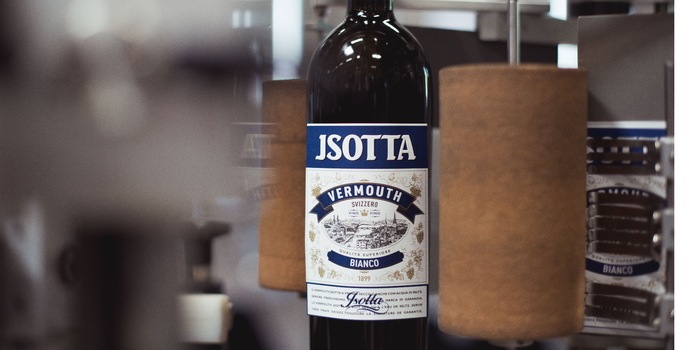
Jsotta: How the famous brand died out – and was brought back to life
Back in the 60s, Jsotta was up there with the famous brands such as Aromat or Maggi. Zurich's very own vermouth was a household name in Switzerland. Today, the name Jsotta has somewhat fallen into oblivion and is hardly associated with vermouth.
In these parts, there is only one brand of vermouth everyone knows: Martini. Similar to tempo tissues or Post-It sticky notes, the Italian brand has truly established itself. But it used to be Jsotta. At the peak of its popularity in the 50s and 60s, the machines at Latetlin AG in Zurich were working away at full speed – filling half a million bottles of Jsotta a year.
At the time, there were ads for the aperitif hanging everywhere. Although the drink was exclusively produced in Zurich, the label was in Italian. This allowed average Swiss citizens to demonstrate their sophistication. It is an ironic twist of fate that this grasp at being cosmopolitan was also the downfall of the Jsotta brand.
In the 70s, the Swiss were all about serving their guests foreign beverages. Vermouth increasingly lost its popularity and production slumped. To add to the problem, a law change in 1999 determined that foreign alcohol should be taxed equally high to Swiss alcohol. This was the final nail in the coffin for Jsotta… at least for the time being.
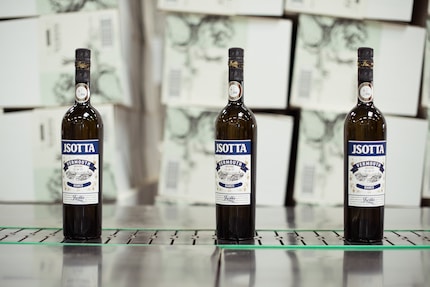
Think global, drink local
Meanwhile, the factory halls of Lateltin AG have moved from Zurich to Winterthur and the machines are bottling Jsotto again. Factory manager Martin Strotz is surveilling the process. He is the man who postponed the appointment with me and our photographer Tom several times. After all, Jsotta is just one of many products bottled in Winterthur, he explains. Because a lot of the team are on holiday now, he has to be flexible.
One of the employees carefully places the glass bottles on the conveyor belt. They are briefly cleaned with air pressure before Jsotta is funnelled into them and the bottles are sealed with a cork. The labels are placed on the front and back of the bottles by a robot and pressed against the glass with a kind of stamp. And finally, a human touch is added. As the quality seal could not handled by the new machine because of its new format, the small golden sticker is stuck on the bottles by hand. Jsotta was a big winner at the last awards ceremony and the customers need to know. The award is the reward for all this hard work.
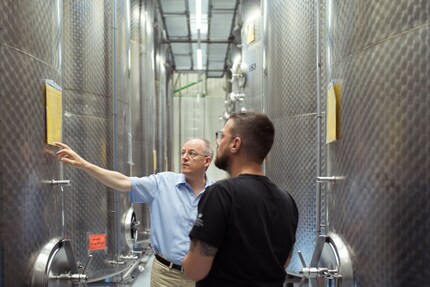
It’s only been two years since Jsotta’s brand revival. It is now the first vermouth ever to be exclusively made from Swiss wine and Swiss herbs. The recipe is a «modernised» version of the old drink, as Avi Pluznik, Brand Manager and part of the third-generation of the family run business explains. The timing appears to be perfect: Neighbouring Germany has also recently seen an increase in resourceful producers making this herbal wine.
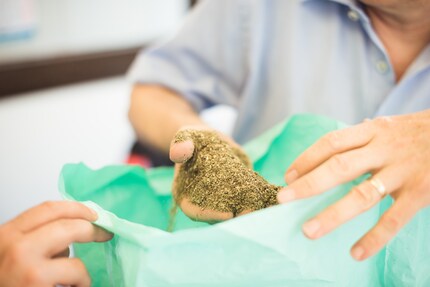
When alcohol ads were still ads
Brand Manager Avi Pluznik was forced to change the company’s advertising strategy. «Today, alcohol advertising is clearly regulated. In my grandfather’s time, it was totally acceptable to use emotional elements,» he says, sounding as if things were better in the good old days. From today’s perspective, the old advertisements are a bit over the top. Probably we’re just not used to this kind of thing anymore. One of them shows a clown riding on a bottle of Jsotta. Another one depicts a fine gentleman taking a relaxing sip of the drink instead of worrying about his collapsing house. In this day and age, ads like this are prohibited and unthinkable.
Besides, the company is not planning on advertising for end consumers; the beverage is primarily being sold to professionals. The Swiss bar scene loves the trendy drink and keeps coming up with new Jsotta-based drinks. Vermouth tastes great straight, on the rocks or with a slug of tonic water. But it’s also a great mixer for a classic Negroni with Gin, Campari or orange peel.
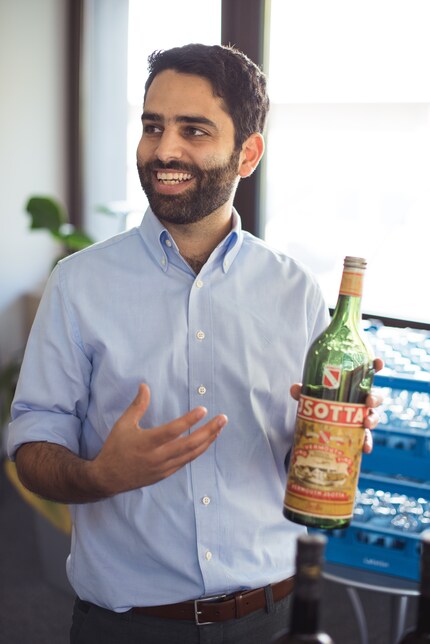
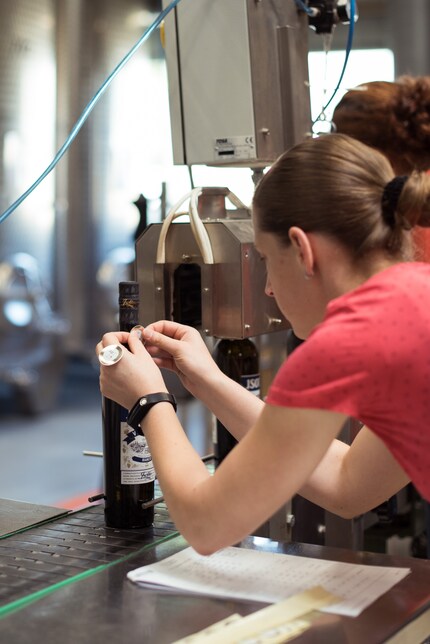
Even if things are looking up, it will be tricky for Jsotto to reach the production records from former times. What is great, though, there’s now a Swiss alternative to classic Martini. Although it’s more expensive than its Italian competitor, it also tastes much better – at least in my opinion.
Back at the factory in Winterthur, the bottling process is over in just under two hours. A palette robot stacks the cardboard boxes with the bottles of Jsotto, thereby sparing the employees’ backs. The palettes leave the warehouse that same week and are sold to bars and wholesalers throughout Switzerland. And who knows? Maybe Jsotto will reclaim its household name status and push the Italian competitor Martini into oblivion.


Jsotta Vermouth Bianco
18 years, 17 %, Switzerland, 1 x 75 cl, Vermouth
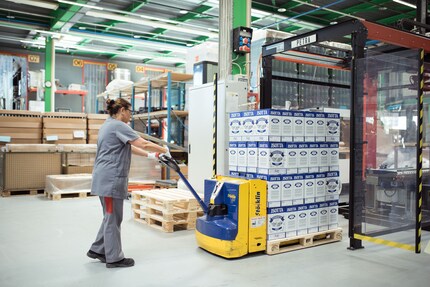
When I flew the family nest over 15 years ago, I suddenly had to cook for myself. But it wasn’t long until this necessity became a virtue. Today, rattling those pots and pans is a fundamental part of my life. I’m a true foodie and devour everything from junk food to star-awarded cuisine. Literally. I eat way too fast.


